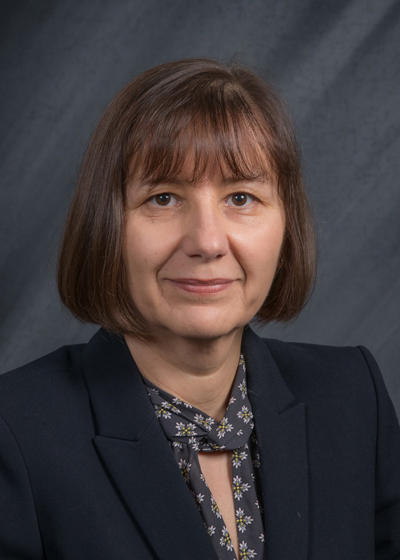EIOH Awarded $6M to Study Novel Approach Against Severe Tooth Decay

Â鶹ÊÓƵ’s Eastman Institute for Oral Health has been awarded $6 million to continue the fight against severe tooth decay among children, which is alarmingly prevalent among minority and indigenous U.S. children. It is difficult to treat effectively and often recurs following treatment.
The standard of care for severe tooth decay (Severe Early Childhood Caries) in very young children revolves around treatment in a surgical operating suite under general anesthesia, followed by application of 5% topical fluoride varnish, family counseling regarding feeding behaviors and oral hygiene instruction. However, these interventions have had only limited success. Tooth decay is the single most common chronic childhood disease.
“Novel and more aggressive approaches are needed because clinical studies show about 40% of children treated for severe tooth decay will develop new cavities within 12 months of treatment,” said Dorota Kopycka-Kedzierawski, DDS, MPH, EIOH professor and principal investigator for the study.

The study, funded by the National Institutes of Health’s National Institute of Dental and Craniofacial Research, will examine the effectiveness of a topical anti-microbial agent, designed to prevent new cavities that require surgical intervention after initial treatment and oral rehabilitation in young children with severe tooth decay.
“At Eastman Institute for Oral Health, we treat more than 1,000 young children age 2 to 6 in the operating room, and the number increases each year,” said Dr. Kopycka-Kedzierawski. “Usually involving all the baby teeth, severe tooth decay among children is a devastating disease. It’s very painful and negatively affects speech, eating and nutrition, sleeping, learning, and overall quality of life.”

Pioneering studies by Dr. Robert Berkowitz, retired chair of EIOH Pediatric Dentistry, showed that a commonly used pre-surgical antimicrobial agent applied topically to the teeth could suppress growth of the bacteria most commonly associated with tooth decay. His work suggested that povidone iodine had the potential to prevent recurrent cavities following treatment and rehabilitation. To test this hypothesis, this new grant will implement a single center randomized, double-blind, placebo-controlled trial to assess the efficacy of povidone iodine to prevent new cavities from developing following treatment.

Children enrolled in the study will be randomly assigned to have either povidone iodine and fluoride varnish applied to their teeth, or a placebo and fluoride varnish. The study agents will be reapplied every three months for up to 24 months.
Dr. Kopycka-Kedzierawski and her team are optimistic this new approach will be effective to prevent recurrent disease and will improve long term clinical outcomes.
Along with Dr. Kopycka-Kedzierawski, other EIOH investigators involved in the study are Drs. Ronald Billings, Sean McLaren, Gene Watson, and Cynthia Wong. University of Rochester School of Medicine and Dentistry co-investigators include Dr. Steve Gill, associate professor, Department of Microbiology and Immunology, Dr. Michael McDermott, professor, Department of Biostatistics and Computation Biology and Dr Michael Sohn, assistant professor, Department of Biostatistics and Computation Biology.


